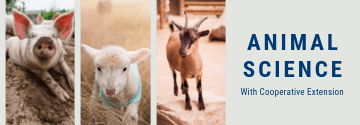I want a Chick for Easter
By Daniel Severson
UD Cooperative Extension
Easter is quickly upon us. The egg has been associated with this holiday for years and in many cultures eggs represent new life and fertility. Visions of children running through the yard on an Easter egg hunt, filling their baskets with eggs, is one of my favorites on this holiday. Easter chicks always seem to be a popular gift this time of year. What most people don’t realize is they require just as much time and commitment as any other pet. Here are some things to think about before giving a chick as an Easter present.
Chicks require special feed and housing. Research on what type of feed the chick will require as it changes during its lifetime is necessary. The environment and housing a chick requires will change as it grows as well. And remember, what goes into a chick eventually has to come out. Are your prepared to deal with that on a daily basis? If you currently have other pets in the house, will they play nice with the new gift? Chicks are very fragile when they are young and can be easily injured by larger animals or children.
Once the cute fluffy feathers are gone and the novelty wears off, you will still have a chicken to feed and take care of. Your zoning laws may not allow chickens on your property. You will have to check with multiple organizations to make sure it is legal to do so. Currently in Delaware, you need to have over one acre of land to raise chickens, unless you are doing so as part of an educational program.
Chickens are a life investment. They are not low-cost or low maintenance. They require just as much care and attention as a dog or cat. I would also recommend that you don’t buy just one chick. Chickens are flock animals and need to be with their own kind, therefore, it will need a buddy. So, you will be dealing with at least two birds. Chickens can live a long life; we once had a chicken that lived to be ten years old!
Another thing to consider is what are you going to do if your chicken gets sick? I do not think you will find a chicken veterinarian around the corner. Also, children may be at risk of Salmonella infection if proper hygiene is not followed. Remember to wash hands thoroughly after handling or playing with the chicks.
While I love chicks and we raise some of our own at my house, there are more practical alternatives. Try a stuffed animal instead. Take your child to a petting zoo where they can interact with the animals for a few hours. If the child still wants a chick, have them volunteer time at a local farm or humane society. They will learn all about the time and care that is necessary for raising a chicken.
Stop by the New Castle County Cooperative Extension Office located 461 Wyoming Road in Newark, Delaware, or phone 302-831-2506 for more information. For comments or questions email me at severson@udel.edu or follow me on twitter @DanSeversonUD.



